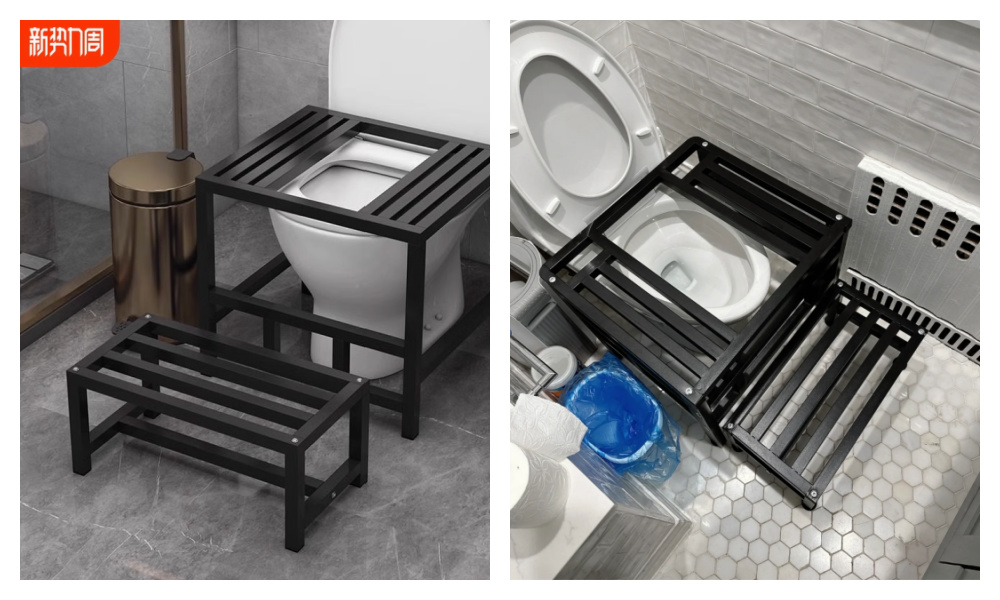China Society
Censorship of Chinese 6B4T & Feminist Groups Prompts Wave of Support for “Douban Sisters”
Even those who don’t agree with ‘6b4t’ views condemn Douban’s recent crackdown on 6b4t and feminist groups.
Published
4 years agoon

What is 6b4t? That is the question popping up in several places on Chinese social media this week after the popular networking platform Douban closed down several feminist groups and targeted the keyword ‘6B4T.’
Douban (豆瓣) is an influential Chinese social media platform that allows users to discuss and review books, music, films, and other topics. The platform has a ‘group’ (小组) function, with groups being like online forums revolving around a particular topic where Douban users can subscribe, post, and interact.
On the night of April 12, Douban closed down more than ten Douban feminist groups, of which some were linked to ‘6b4t’ views.
6b4t is an online movement that originated in South Korea and is about female empowerment and independence that shifts away from patriarchal society and male-dominated fields in popular culture and beyond.
The ‘6B’ stands for no husband, no children, no boyfriend, no male sex partner, not buying any products/brands that are unfriendly to women, and offering support to single women. The movement received some media attention earlier in 2019, when it was still about ‘4B’ or the ‘4 no’s’ (no marriage, no kids, no boyfriend, no sex; the ‘single women support’ and ‘refusal of buying misogynistic products’ were added later). The ‘4T’ stands for the rejection of shapewear (corsets), religion, otaku culture, and idols.
“A devastating blow for Chinese radical feminists”
The censorship of 6b4t-related groups on Douban sparked sharp criticism and anger online. On Twitter, ‘HAL 10000’ (@dualvectorfoil) called the crackdown “a devastating blow” for Chinese radical feminists.
Chinese radical feminists just suffered a devastating blow. On April 12, the Chinese government disbanded all radical feminist groups on Douban, a popular social networking website. Those are the only discussion forums that Chinese feminists could find.
— HAL 10000 (@dualvectorfoil) April 13, 2021
The Twitter account FreeChineseFeminists (@FeministChina) posted a screenshot of Douban’s notification that the ‘6B4T’ group had been removed, with the platform calling it an “extreme” and “radical” “ideology.”
Douban, a social media site used by Chinese urban youth, closed more than 10 feminist groups and banned the keyword 6B4T, a feminist view from South Korea that advocates women not getting married and having no children. Douban calls 6B4T an "extreme" and "radical" "ideology." pic.twitter.com/o9QxhIZoqj
— FreeChineseFeminists (@FeministChina) April 13, 2021
On Weibo, many commenters also spoke out against the removal of the feminist Douban groups.
“I am 6b4t and although it might seem extreme in the eyes of some, I am not harming anyone at all,” one person wrote, with another commenter adding: “This is completely limited to myself, I do not influence others.”
“I’ve been 6b4t for years without even realizing,” one Weibo user jokingly wrote: “I’ve been single forever!”
Another person admitted: “I don’t really look at Douban, and I don’t really understand 6b4t, but blowing up those groups like this goes too far.”
“We have to firmly support our Douban sisters”
The account of Xianzi, the woman who became famous for the Xianzi versus Zhu Jun court case, also commented on the Douban censorship on April 13:
“I am not a follower of 6b4t at all, but I firmly support my Douban sisters and oppose how the feminist Douban groups have been shut out. First, 6B4T clearly is an important branch of contemporary online feminism – shutting these groups out is shutting out discussions on female topics. Seconds, the viewpoint of 6B4T is not radical at all, it just asserts that women do not need to enter heterosexual relationships and can break away from masculine control. This is completely up to women themselves and has nothing to do with anyone else. When even such a viewpoint is banned, and women insisting on being single are still seen as rebellious — this is the fundamental reason why we have to firmly support our Douban sisters.”
Many people support Xianzi’s statement, and meanwhile, the hashtag “Women Let’s Unite” (#女性们团结吧#) also took off on Weibo, with many commenters calling on women to let their voices be heard.
“If someone is covering your mouth to try and silence you – scream louder,” one person wrote.
The hashtag was also used to address issues of domestic abuse, a topic that has received a lot of attention on Chinese social media over the past year. In October of 2020, the death of the female vlogger Lamu, who was burnt by her ex-husband, also sparked an online movement that called on authorities to do more to protect and legally empower female victims of domestic abuse.
The ‘Women Unite’ hashtag page had received over 47 million views by late Tuesday night. Another relating hashtag, ‘Douban Feminism’ (#豆瓣女权#) was viewed over 40,000 times.
“You can disagree, but you can’t silence them”
While the search for ‘6b4t’ gave few new results on the Douban site at the time of writing, there were still some older posts on the topic.
One noteworthy one is that by user *Blossom*, who took the time earlier this year to explain what 6b4t means to her, saying “6b4t is an act of struggle, it is not a discipline.”
In the post of February 2nd of this year, ‘Blossom’ explains that 6b4t is a way of resistance where the keyword is “sovereignty,” namely the female sovereignty over her own body. 6b4t is a way to fight for radical feminism, Blossom claims:
“In the context of patriarchal society, women are sexually objectified while male sexuality equals power. Under this premise, marriage, childbearing, romantic love, and sexual activity are all about reinforcing the power of men and benefiting them. So we advocate 4b, which essentially is a non-violent and non-cooperative struggle mode, with the same characteristics as workers’ and slaves’ strikes.”
Although there are also people expressing disagreement with the 6b4t movement, many defend their right to have online discussion groups about their ideas.
“You can disagree, you can call them into question, but you can’t cover their mouths to silence them,” one Weibo user wrote.
“We can have groups advocating marriage and childbirth, why can’t we have groups advocating being single and childfree?”, another person asked, with one commenter stating: “I do not advocate 6B4T, but I will defend to the death the right of these women to advocate 6B4T.”
Throughout the years, feminist movements have often become a target of censorship on Chinese social media. Douban previously also censored content relating to the Zhu Jun sexual harassment case, and in the case of demanding justice for Lamu, some hasthag pages were also removed from Weibo. The renowned feminist Weibo account ‘Feminist Voices’ (@女权之声) was permanently banned in 2018, along with other feminist accounts.
“A new era of witch-hunting has started,” one top comment in a thread of 2200 comments said: “Get ready to fight, let your voice be heard!”
A somewhat ironic consequence of Douban’s latest censorship is that many people who had never heard about this ‘radical feminism’ now know what 6b4t is because it became a ‘banned term.’ “I’ve learnt a new word today,” some commenters say, with others vowing to support their silenced ‘Douban sisters.’
By Manya Koetse
Spotted a mistake or want to add something? Please let us know in comments below or email us. First-time commenters, please be patient – we will have to manually approve your comment before it appears.
©2021 Whatsonweibo. All rights reserved. Do not reproduce our content without permission – you can contact us at info@whatsonweibo.com.
Manya is the founder and editor-in-chief of What's on Weibo, offering independent analysis of social trends, online media, and digital culture in China for over a decade. Subscribe to gain access to content, including the Weibo Watch newsletter, which provides deeper insights into the China trends that matter. More about Manya at manyakoetse.com or follow on X.

China Insight
Squat or Sit? China’s Great Toilet Debate and the Problem of Footprints on the Seat
From squatting to standing on seats: the messy reality of sitting toilets in Beijing malls.
Published
3 weeks agoon
March 25, 2025
FROM THE WEIBO WATCH PREMIUM NEWSLETTER
Shoe prints on top of the toilet seat are never a pretty sight. To prevent people from squatting over Western-style sitting toilets, there are some places that will place stickers above the toilet, reminding people that standing on the seat is strictly forbidden.

For years, this problem has sparked debate. Initially, these discussions would mostly take place outside of China, in places with a large number of Chinese tourists. In Switzerland, for example, the famous Rigi Railways caused controversy for introducing separate trains with special signs explaining to tourists, especially from China, how (not) to use the toilet.
Squat toilets are common across public areas in China, especially in rural regions, for a mix of historical, cultural, and practical reasons. There is also a long-held belief — backed by studies (like here or here) — that the squatting position is healthier for bowel movements (for more about the history of squat toilets in China, see Sixth Tone’s insightful article here).

Public squatting toilets in Beijing, images via Xiaohongshu.
Without access to the ground-level squat toilets they are used to — and feel more comfortable with — some people will climb on top of sitting toilets to use them in the way they’re accustomed to, seeing squatting as the more natural and hygienic method.

Not only does this make the toilet seat all messy and muddy, it is also quite a dangerous stunt to pull, can break the toilet, and lead to pee and poo going into all kinds of unintended directions. Quite shitty.

Squatting on toilets makes the seat dirty and can even break the toilet.
Along with the rapid modernization of Chinese public facilities and the country’s “Toilet Revolution” over the past decade, sitting toilets have become more common in urban areas, and thus the sitting-toilet-used-as-squat-toilet problem is increasingly becoming topic of public debate within China.
The Toilet Committee and Preference for Sitting Toilets
Is China slowly shifting to sitting toilets? Especially in modern malls in cities like Beijing, or even at airports, you see an increasing number of Western-style sitting toilets (坐厕) rather than squatting toilets (蹲厕).
This shift is due to several factors:
🚽📌 First, one major reason for the rise in sitting toilets in Chinese public places is to accommodate (foreign) tourists.
In 2015, China Daily reported that one of the most common complaints among international visitors was the poor condition of public toilets — a serious issue considering tourists are estimated to use public restrooms over 27 billion times per year.
That same year, China’s so-called “Toilet Revolution” (厕所革命) began gaining momentum. While not a centralized campaign, it marked a nationwide push to upgrade toilets across the country and improve sanitation systems to make them cleaner, safer, and more modern.
This movement was largely led by the tourism sector, with the needs of both domestic and international travelers in mind. These efforts, and the buzzword “Toilet Revolution,” especially gained attention when Xi Jinping publicly endorsed the campaign and connected it to promoting civilized tourism.
In that sense, China’s toilet revolution is also a “tourism toilet revolution” (旅游厕所革命), part of improving not just hygiene, but the national image presented to the world (Cheng et al. 2018; Li 2015).
🚽📌 Second, the growing number of sitting toilets in malls and other (semi)public spaces in Beijing relates to the idea that Western-style toilets are more sanitary.
Although various studies comparing the benefits of squatting and sitting toilets show mixed outcomes, sitting toilets — especially in shared restrooms — are generally considered more hygienic as they release fewer airborne germs after flushing and reduce the risk of infection (Ali 2022).
There are additional reasons why sitting toilets are favored in new toilet designs. According to Liang Ji (梁骥), vice-secretary of the Toilet Committee of the China Urban Environmental Sanitation Association (中国城市环境卫生协会厕所专业委员会), sitting toilets are also increasingly being introduced in public spaces due to practical concerns.
🚽📌 Squatting is not always easy, and can pose a safety risk, particularly for the elderly, pregnant women, and people with disabilities.
🚽📌 Then there are economic reasons: building squat toilets in malls (or elsewhere) requires a deeper floor design due to the sunken space needed below the fixture, which increases both construction time and cost.
🚽📌 Liang also points to an aesthetic factor: sitting toilets simply look more “high-end” and are easier to clean, which is why many consumer-oriented spaces prefer to install Western-style toilets.
So although there are plenty of reasons why sitting toilets are becoming a norm in newly built public spaces and trendy malls, they also lead to footprints on toilet seats — and all the problems that come with it.
The Catch 22 of Sitting vs Squad Toilets
This week, the issue became a trending topic on Weibo after Beijing News published an investigative report on it. The report suggested that most shopping malls in Beijing now have restrooms with sitting toilets, which should, in theory, be cleaner than the squat toilets of the past — but in reality, they’re often dirtier because people stand on them. This issue is more common in women’s restrooms, as men’s restrooms typically include urinals.
In researching the issue, a reporter visited several Beijing malls. In one women’s restroom, the reporter observed 23 people entering within five minutes. Although the restroom had only three squat toilets versus seven sitting ones, around 70% of the users opted for the squat toilets.
Upon inspection, most of the seven sitting toilets were dirty — despite being equipped with disposable seat covers — showing clear signs of urine stains and footprints. They found that sitting toilets being used as squat toilets is extremely common.
It’s a bit of a Catch-22. People generally prefer clean toilets, and there’s also a widespread preference for squat toilets. This leads to sitting toilets being used as squat toilets, which makes them dirty — reinforcing the preference for squat toilets, since the sitting toilets, though meant to be cleaner, end up dirtier.
In interviews with 20 women, nearly 80% said they either hover in a squat or directly squat on the toilet seat. One woman said, “I won’t sit unless I absolutely have to.” While some of those quoted in the article said that sitting toilets are more comfortable, especially for elderly people, they are still not preferred when the seats are not clean.
In the Beijing News article, the Toilet Committee’s Liang Ji suggested that while a balanced ratio of squat and sitting toilets is necessary, a gradual shift toward sitting toilets is likely the future for public restrooms in China.

How NOT to use the sitting toilet. Sign photographed by Xiaohongshu user @FREAK.00.com.
Liang also highlighted the importance of correct toilet use and the need to consider public habits in toilet design.
In Squatting We Trust
On Chinese social media, however, the majority of commenters support squatting toilets. One popular comment said:
💬 “Please make all public toilets squat toilets, with just one sitting toilet reserved for people with disabilities.”

Squatting toilets in a public toilet in a Beijing hutong area, image by Xiaohongshu user @00后饭桶.
The preference for squatting, however, doesn’t always come down to bowel movements or tradition. Many cite a lack of trust in how others use public toilets:
💬 “When it comes to things for public use, it’s best to reduce touching them directly. Honestly, I don’t trust other people…”
💬 “Squatting is the most hygienic. At least I don’t have to worry about touching something others touched with their skin.”
💬 “I hate it when all the toilets in the women’s restroom at the mall are sitting toilets. I’m almost mastering the art of doing the martial-arts squat (蹲马步).”
Others view the gradual shift toward sitting toilets as a result of Westernization:
💬 “Sitting toilets are a product of widespread ‘Westernization’ back in the day — the further south you go, the worse it gets.”
But some come to the defense of sitting toilets:
💬 “Are there really still people who think squat toilets are cleaner? The chances of stepping in poop with squat toilets are way higher than with sitting ones. Sitting toilet seats can be wiped with disinfectant or covered with paper. Some people only care about keeping themselves ‘clean’ without thinking about whether the next person might end up stepping in their mess.”
💬 One reply bluntly said: “I don’t use sitting toilets. If that’s all there is, I’ll just squat on top of it. Not even gonna bother wiping it.”
It’s clear this debate is far from over, and the issue of people standing on toilet seats isn’t going away anytime soon. As China’s toilet revolution continues, various Toilet Committees across the country may need to rethink their strategies — especially if they continue leaning toward installing more sitting toilets in public spaces.
As always, Taobao has a solution. For just 50 RMB (~$6.70), you can order an anti-slip sitting-to-squatting toilet aid through the popular e-commerce platform.

The Taobao solution.
For Chinese malls, offering these might be cheaper than dealing with broken toilets and the never-ending battle against footprints on toilet seats…
By Manya Koetse
(follow on X, LinkedIn, or Instagram)
References:
Ali, Wajid, Dong-zi An, Ya-fei Yang, Bei-bei Cui, Jia-xin Ma, Hao Zhu, Ming Li, Xiao-Jun Ai, and Cheng Yan. 2022. “Comparing Bioaerosol Emission after Flushing in Squat and Bidet Toilets: Quantitative Microbial Risk Assessment for Defecation and Hand Washing Postures.” Building and Environment 221: 109284. https://doi.org/10.1016/j.buildenv.2022.109284.
Bhattacharya, Sudip, Vijay Kumar Chattu, and Amarjeet Singh. 2019. “Health Promotion and Prevention of Bowel Disorders Through Toilet Designs: A Myth or Reality?” Journal of Education and Health Promotion 8 (40). https://doi.org/10.4103/jehp.jehp_198_18.
Cao, Jingrui 曹晶瑞, and Tian Jiexiong 田杰雄. 2025. “城市微调查|商场女卫生间,坐厕为何频频变“蹲坑”? [In Shopping Mall Women’s Restrooms, Why Do Sitting Toilets Frequently Turn into ‘Squat Toilets’?]” Beijing News, March 20. https://weibo.com/ttarticle/p/show?id=2309405146044773302810. Accessed March 19, 2025.
Cheng, Shikun, Zifu Li, Sayed Mohammad Nazim Uddin, Heinz-Peter Mang, Xiaoqin Zhou, Jian Zhang, Lei Zheng, and Lingling Zhang. 2018. “Toilet Revolution in China.” Journal of Environmental Management 216: 347–356. https://doi.org/10.1016/j.jenvman.2017.09.043.
Dai, Wangyun. 2018. “Seats, Squats, and Leaves: A Brief History of Chinese Toilets.” Sixth Tone, January 13. https://www.sixthtone.com/news/1001550. Accessed March 22, 2025.
Li, Jinzao. 2015. “Toilet Revolution for Tourism Evolution.” China Daily, April 7. https://europe.chinadaily.com.cn/opinion/2015-04/07/content_20012249_2.htm. Accessed March 22, 2025.
Spotted a mistake or want to add something? Please let us know in comments below or email us. First-time commenters, please be patient – we will have to manually approve your comment before it appears.
©2025 Whatsonweibo. All rights reserved. Do not reproduce our content without permission – you can contact us at info@whatsonweibo.com.
China Food & Drinks
China Trending Week 11: The Yang Braised Chicken Scandal, Haidilao Pee Incident, Taiwan Tensions
What’s been trending on Weibo and beyond? I doomscrolled Chinese social media so you don’t have to.
Published
1 month agoon
March 13, 2025
Here’s the latest roundup of the three top trends and most noteworthy discussions on Chinese social media this week.
🍚🤢Yang’s Braised Chicken Rice Scandal

The popular Chinese franchise Yang’s Braised Chicken Rice (杨铭宇黄焖鸡米饭) is at the center of attention this week—for all the wrong reasons. The company, which opened its first restaurant in 2011 and has since franchised more than 2500 locations across China, was exposed by Beijing News for reusing expired ingredients and reselling leftover food in at least three of its restaurants in Zhengzhou and Shangqiu (Henan). Cooks were smoking in the kitchen and even going as far as dyeing spoiled, darkened beef with food coloring to make it appear fresh.
The issue has sparked widespread concern on Chinese social media—not only because Yang’s Braised Chicken Rice is a well-known restaurant chain, but also because food safety and kitchen hygiene remain ongoing concerns in China. The timing of this news is particularly significant, as it was published in the lead-up to March 15—China’s National Consumer Rights Day, an annual event that highlights consumer protection issues.
China’s State Council Food Safety Commission Office has now ordered authorities in Henan and Shandong, where Yang’s Braised Chicken is headquartered, to thoroughly investigate the case. The affected stores will reportedly be closed permanently, but the impact extends far beyond these locations—most netizens discussing the scandal have made it clear they won’t be ordering from Yang’s Braised Chicken Rice anytime soon.
Can the company win back consumer trust? Even though general management has been apologizing and pledged to personally oversee kitchen standards, this is not the first time the company is in hot water. In 2024, a customer in Chengdu allegedly ordered Yang’s Braised Chicken Rice via takeout and discovered a fully cooked dead rat in their meal (picture here not for the faint of heart).
🇹🇼⚔️Beijing Angrily Responds to Lai Ching-te’s Speech: “Pushing Taiwan Towards the Danger of War”

While tough language on Taiwan was already trending last week during China’s Two Sessions, another wave of discussions on Taiwan has emerged this week. This follows a high-level national security meeting held on Thursday by Taiwanese President Lai Ching-te (赖清德), after which he addressed the media and proposed more aggressive strategies to counter Beijing’s so-called ‘united front’ efforts within Taiwan.
On Friday, Beijing responded with stern remarks. Chen Binhua (陈斌华), spokesperson for the Taiwan Affairs Office of the State Council, called Lai Ching-te a “destroyer of cross-strait peace” (“两岸和平破坏者”) and a “creator of crises in the Taiwan Strait” (“台海危机制造者”) who is “pushing Taiwan towards the dangerous situation of war” (“把台湾推向兵凶战危险境”).
Chen also reiterated Beijing’s stance that reunification with Taiwan is inevitable. This message was further amplified on Chinese social media platforms such as Weibo and Douyin through the hashtag “Inevitable Reunification with the Motherland” (#祖国必然统一#).
🔥🚽Haidilao’s “Pissgate”

Last week, on March 6, a peculiar news item went viral on Chinese social media, and I tweeted out the viral video here. The footage shows a young man standing on a table in a private dining room at a Haidilao restaurant, seemingly urinating into the hotpot. The incident was later confirmed to have taken place at the popular chain’s Bund location in Shanghai on the night of February 24.
Just when you thought the world couldn’t get any crazier… someone stands up and pisses in the Haidilao hotpot. Blasphemy! Hotpot treason!
Anyway, Haidilao reported the guy to the police, and I’m pretty sure he won’t be welcome back anytime soon. pic.twitter.com/3ytLhGdYjX
— Manya Koetse (@manyapan) March 6, 2025
Honestly, the video seemed staged (the “pee” looked more like water), but understandably, Haidilao was very pissed about the negative impact on its reputation. In case you’re not familiar: Haidilao is one of China’s most popular hotpot chains, known for its excellent service and food quality (read here).
The company immediately launched an investigation into the video’s origins and reported the two men—the one urinating and the one filming—to the police.
This week, the incident gained even more traction (even the BBC covered it) after it was revealed that Haidilao had reimbursed 4,109 customers who dined at the restaurant between February 24, when the incident occurred, and March 8, when all tableware was discarded and the entire restaurant was disinfected.
Not only did Haidilao reimburse customers, but they also compensated them tenfold.
This compensation strategy sparked all kinds of discussions on Chinese social media. While many agreed with Haidilao’s solution to prevent a marketing crisis, some customers and netizens raised ethical questions, such as:
💰If you paid for your meal with coupons and only spent a couple of cents in cash, is it fair that some customers only received 9 RMB ($1.25) in compensation?
💰If you paid for an entire group of friends, meaning you originally spent around $140 on a meal but now received $1,400 in reimbursement, should you split the compensation with your friends?
💰How should cases be handled where a third party made the reservation and ends up claiming part of the compensation?
By now, the incident has become about much more than just pissing in soup.
By Manya Koetse
(follow on X, LinkedIn, or Instagram)
Spotted a mistake or want to add something? Please let us know in comments below or email us. First-time commenters, please be patient – we will have to manually approve your comment before it appears.
©2025 Whatsonweibo. All rights reserved. Do not reproduce our content without permission – you can contact us at info@whatsonweibo.com.
Subscribe
China Trending Week 15/16: Maozi & Meigui Fallout

China Reacts: 3 Trending Hashtags Shaping the Tariff War Narrative

No Quiet Qingming: From High-Tech Tomb-Sweeping to IShowSpeed & the Seven China Streams

From Trade Crisis to Patriotic Push: Chinese Online Reactions to Trump’s Tariffs

China Trending Week 14: Gucci Fake Lipstick, Xiaomi SU7 Crash, Yoon’s Impeachment

“Dear Li Hua”: The TikTok/Xiaohongshu Honeymoon Explained

Beyond the Box Office: What’s Behind Ne Zha 2’s Success?

Weibo Watch: A New Chapter

15 Years of Weibo: The Evolution of China’s Social Media Giant

Tuning Into the Year of the Snake

IShowSpeed in China: Streaming China’s Stories Well

TikTok Refugees, Xiaohongshu, and the Letters from Li Hua

The ‘China-chic Girl’ Image and the Realities of China’s Competitive Food Delivery Market

US-Russia Rapprochement and “Saint Zelensky”: Chinese Online Reactions to Trump’s Shake-Up

“Black Myth: Wukong”: From Gaming Screens to the CMG Spring Festival Gala?
Get in touch
Would you like to become a contributor, or do you have any tips or suggestions? Get in touch here!
Popular Reads
-

 China Insight11 months ago
China Insight11 months agoThe Tragic Story of “Fat Cat”: How a Chinese Gamer’s Suicide Went Viral
-

 China Digital10 months ago
China Digital10 months agoChina’s 2024 Gaokao Triggers Online Discussions on AI
-

 China Arts & Entertainment11 months ago
China Arts & Entertainment11 months agoSinging Competition or Patriotic Fight? Hunan TV’s ‘Singer 2024’ Stirs Nationalistic Sentiments
-

 China Arts & Entertainment12 months ago
China Arts & Entertainment12 months ago“Old Bull Eating Young Grass”: 86-Year-Old Chinese Painter Fan Zeng Marries 36-Year-Old Xu Meng






GP63
April 18, 2021 at 6:53 am
Oh Dear, Lebron James will be very upset with China when he hears this. lol
Napoleon de Geso
April 18, 2021 at 12:22 pm
Good. Feminist degeneracy must be stopped, or China will fall same as West